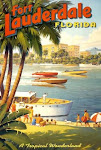
SEVERE:The safety and security of the entire worldwide Jewish community is in peril.
HIGH:Current Zionist activities and statements present an imminent threat to safety and security.
ELEVATED:Zionist activity has increased and the possibility of violence and intimidation exists.
GUARDED:Zionist acivities have declined and we are cautiously optimistic.
LOW:Zionism has been almost eradicated, but as long as there are Zionists, we must continue to monitor and assess their actions.
ASSESSING THE THREAT OF ZIONISM
True Torah Jews monitor news events to assess the threat of Zionism to the worldwide Jewish community.
Using a system similar to the US Terrorism alert, we will keep you posted of our assessment of the Zionism threat level based on current events.
Naturally, some areas of the world, such as the so-called "state of Israel" are in greater danger than most, but our assessment is for the entire world Jewish community.
Far from being the saviors of the Jewish People, the Zionists are the true self-hating Jews who have had nothing but contempt and outright hatred for the Jewish People and Judaism. Anti-Semitism has been the oxygen and lifeblood of the Zionists throughout the ages to the present day.
By contrast, we anti-Zionist Jews having been doing all we can to reduce hatred of Jews by proclaiming the true nature of the Jewish religion in contrast to the heresy and idolatry of Zionism. We hope this will help Jews awaken from the brainwashing of the Zionists.
Recent Zionist activity and statements which have been used in our assessment of the threat level are listed below with links to the News stories, articles and on the events.Indicates the response by True Torah Jews
The New-Zion explored in the taboo of Israel
By: Ken LaRive
The more taboos in society, the less freedom of thought there is, and mentioning Israel is a case in point. Any reference sets a barrage of mixed emotion for a place so dear to our collective hearts.
We speak of Israel these days as a Zionist Jewish State, and so it appears to be. But I use the word ‘appear’ to indicate that Israel means different things to different people, and not all of it is good. The problem is that the original benign concept of what Zion envisioned has changed.
Stigma and fear, with intentional media erroneousness, is contributing to the possibility of WWIII, and we Americans had better see past the smoke.
The beauty of Judaism comes in many richly colored coats and facets, with considerations of it being a race or religion the primary factor for confusion. A secular Jew, agnostic and non-practicing, is still considered by most a Jew. Secular, to some, means Godless, with other suitable adjectives like skeptic, or atheist. Still, there is no such thing as a secular Christian or Muslim, and that’s the rub.
For centuries a Jewish homeland was considered, and at the turn of the century the great majority of both religious and secular Jews thought Israel the perfect place. The difference was the method of acquiring it. Originally a Zionist ‘homeland’ inferred not disturbing indigenous populations, where gentle incorporation agreed with ancient textual revelations inferring a Jewish homeland would be given freely. In this way many religions could call Israel a homeland, as all Persian religions got their start in the area. It is indeed inconceivable that true Muslim believers would nuke their own precious sites in Israel, and the world expects a secularist to press that button.
From inception, America advocated separation of Church and State, but here we are with a secular warrior ally who is both. They deny the tolerant Jewish spirit with a biased yellow media and a threatening atom bomb in their back pocket.
The New-Zion is thought invalidated by the rewritten Belfour agreement of 1948, secretly ratified. Hezbollah are the ruminants of those originally exiled, still living in tent cities. Palestinians think themselves occupied, and they deny the New-Zion State’s right to exist. The Ideologies of the new secular Zion are duplicated here, dominating America’s far left, where liberal secularism is nurtured and thrives, the bane of our Republic.
When confronted, liberal-secularists may cry “anti-Semitic,” validating the taboo, but the truth is this: one can be anti-New-Zion, and not anti-Semitic, and this one resounding truth might finally inspire us to live in peace.




